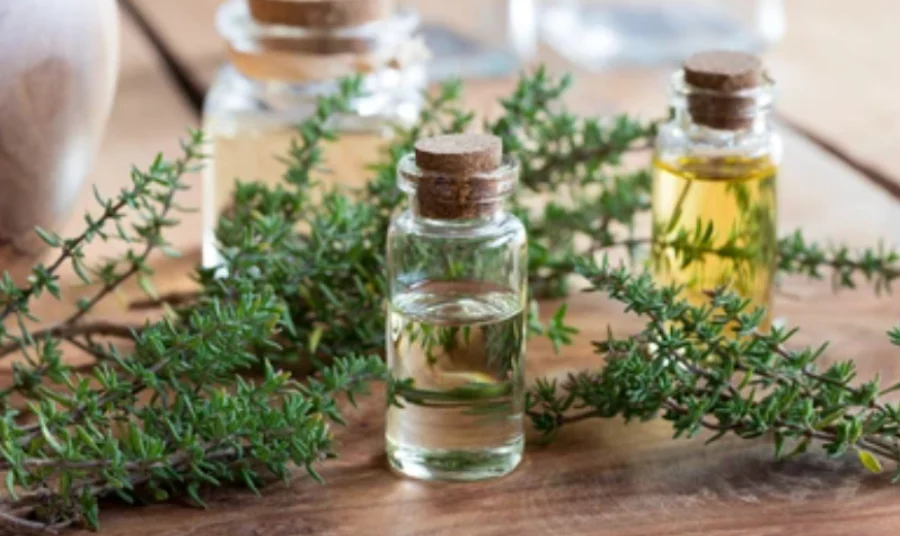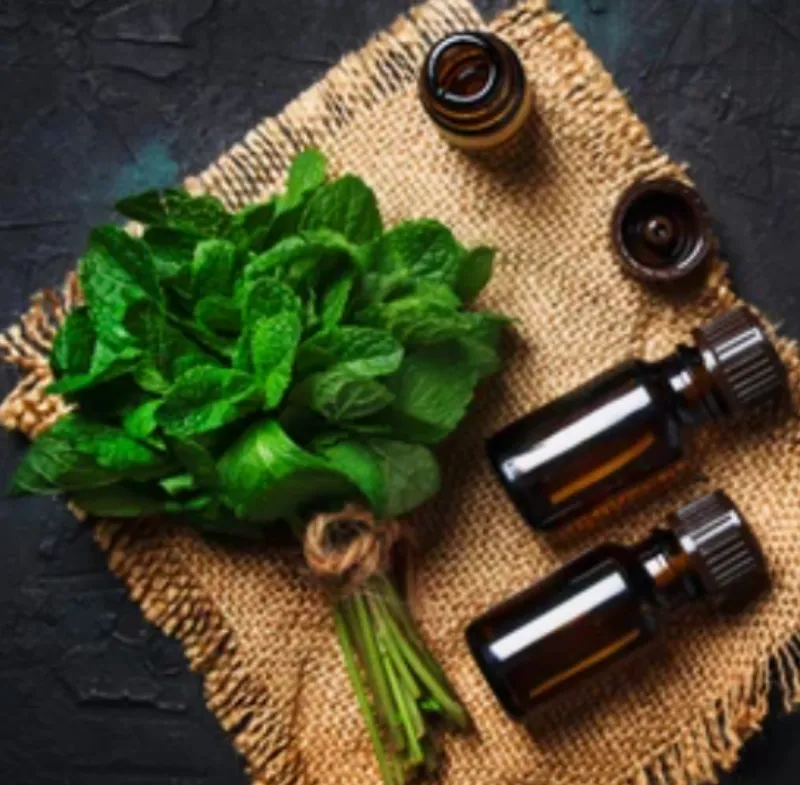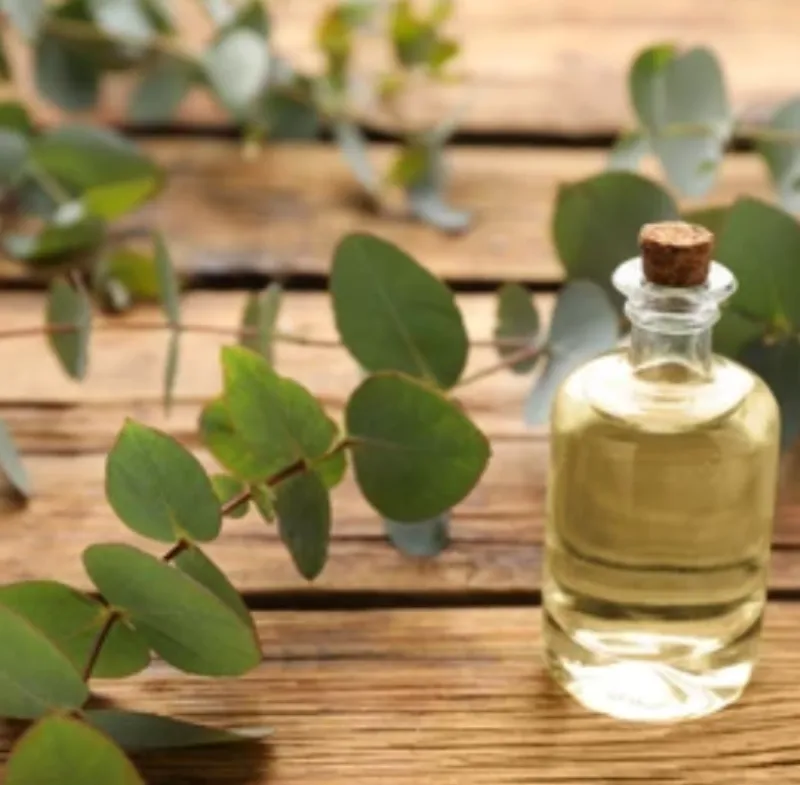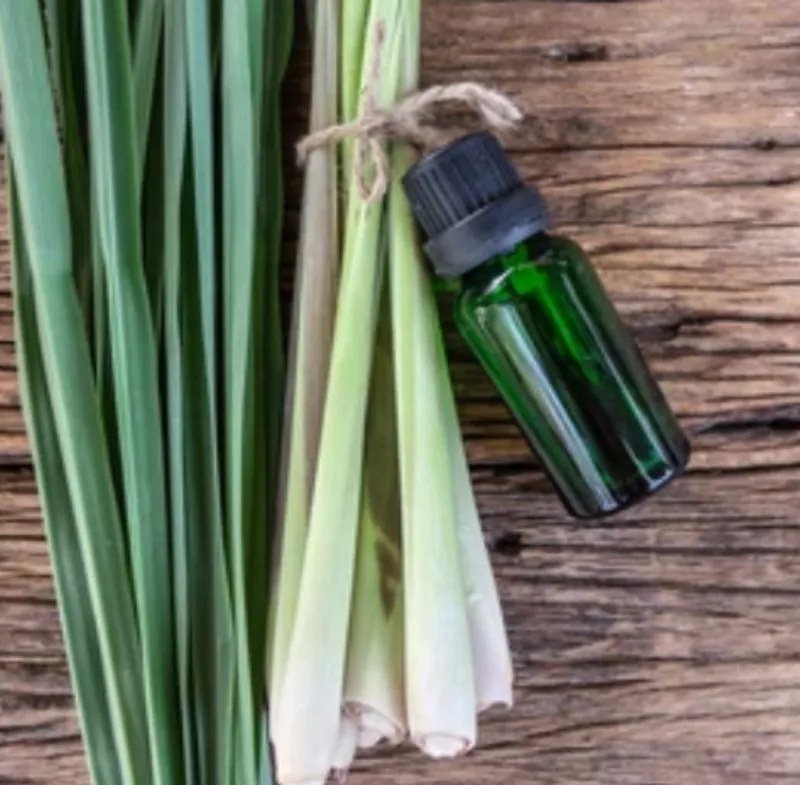Essential Oil Uses

Essential Oils & Their Uses on Horses
“A Holistic Approach”
Essential oils offer a gentle and effective solution to various equine issues that often do not have answers from traditional medicine. Conditions such as chronic skin problems, allergies, arthritis, Cushing’s Syndrome, stress-related ailments, and behavioral issues can find relief through the use of essential oils.
The mechanism behind essential oils is their extraction from different plants, each serving various functions within their respective plants. Some attract pollinating insects, some repel them, and certain oils even protect the plants from bacterial infections and help in wound healing. It is easy to see how these properties can be utilized for animals as well. The volatile nature of essential oils causes their molecules to evaporate into the air as soon as the bottle is opened. When horses or humans inhale these oils, their chemical constituents are absorbed through the olfactory system and into the limbic system of the brain. This area of the brain regulates emotions, memory, and certain bodily functions.
Inhaling essential oils triggers neurotransmitters that can reduce pain, induce sedation, stimulation, or calmness, and help achieve overall balance in the body. It is now widely accepted that our emotional state affects our physical well-being; stress weakens the immune system, while laughter supports healing. Essential oils work simultaneously on the emotional and physical levels. For instance, oils that soothe inflamed skin can also have a calming effect on an animal experiencing “temper tantrums”. As physical conditions improve, the animal’s temperament may also undergo positive changes.
The first principle of Essential Oil Therapy for Animals (EOTA) is to prioritize the horse’s choice. Unlike human aromatherapy, massage is not the main method of application in EOTA. EOTA acknowledges that animals have an innate ability to self-medicate. In a natural environment, horses instinctively select the herbs they require to maintain a healthy system.
We have selected, used, tested and have had great results with all of the essentials oils we use in our products along with numerous other oils we have used over the years. We compiled a nice list of all the oils, along with their uses and functions – we will be offering all of these oils on the site in months to come!
Our 4 Favorite Essential Oils for Horse Care:
Lavender Essential Oil Uses

Lavender essential oil offers several benefits for horses. Here are some of the key benefits:
1. Calming and Relaxation: Lavender essential oil has a soothing aroma that can help horses relax and reduce stress and anxiety. It is often used in situations that may cause nervousness or agitation, such as trailering, grooming, or veterinary visits.
2. Sleep Aid: Lavender essential oil can promote better sleep in horses. The calming properties of lavender can help them relax before bedtime, ensuring a more restful sleep.
3. Skin Health: Lavender essential oil possesses antifungal, antibacterial, and antiseptic properties, which can aid in treating various skin conditions in horses. It can help alleviate symptoms of skin irritations, such as scratches, insect bites, or minor wounds.
4. Respiratory Support: The inhalation of lavender essential oil can aid in respiratory health for horses. It can help soothe and ease respiratory discomfort caused by allergies, congestion, or respiratory infections.
5. Insect Repellent: Lavender essential oil has natural insect-repellent properties, making it useful for keeping flies, mosquitoes, and other insects at bay. You can dilute lavender essential oil in water and spray it on your horse or use it in homemade fly sprays.
When using lavender essential oil on horses, consider the following:
– Always dilute the essential oil before applying it topically. Use a carrier oil, such as coconut or jojoba oil, to ensure proper dilution.
– Conduct a patch test on a small area of the horse’s skin to check for any adverse reactions before using the oil more extensively.
– Consult with a veterinarian or equine professional before using lavender essential oil, especially if your horse has any pre-existing health conditions or is pregnant or nursing.
Lavender essential oil can be an excellent addition to your horse’s care routine, providing them with the benefits of relaxation, skin health, respiratory support, and insect repellency. Remember to use it safely and responsibly to ensure the well-being of your horse.
Thyme Essential Oil Uses

Thyme essential oil offers several benefits for horses. Here are some of the key benefits:
1. Respiratory Support: Thyme essential oil has expectorant and antiseptic properties, which can be beneficial for horses with respiratory issues. It can help clear congestion, soothe coughs, and support overall respiratory health.
2. Immune System Boost: Thyme essential oil possesses antimicrobial and immune-stimulating properties, which can help horses strengthen their immune system and fight off infections. It is particularly useful during times of illness or when the horse’s immune system may be compromised.
3. Digestive Aid: Thyme essential oil can aid in digestive health for horses. It can help stimulate appetite, improve digestion, and alleviate gastrointestinal discomfort. It also has carminative properties that can help relieve gas and bloating.
4. Antifungal and Antiparasitic Properties: Thyme essential oil has antifungal and antiparasitic properties, making it useful for treating and preventing fungal infections and external parasites in horses, such as ringworm or lice. It can be applied topically after dilution with a carrier oil.
5. Wound Healing: Thyme essential oil has antimicrobial properties that can aid in the healing of wounds, cuts, or abrasions in horses. It can help prevent infection and promote faster healing when applied topically after dilution.
When using thyme essential oil on horses, it is important to consider the following:
– Always dilute the essential oil with a carrier oil, such as coconut or jojoba oil, before applying it topically.
– Conduct a patch test on a small area of the horse’s skin to check for any adverse reactions before using the oil more extensively.
– Consult with a veterinarian or equine professional before using thyme essential oil, especially if your horse has any pre-existing health conditions or is pregnant or nursing.
By incorporating thyme essential oil into your horse’s care routine, you can harness its numerous benefits and support their respiratory health, immune system, digestion, and wound healing. Just ensure that you are using it safely and responsibly for the well-being of your horse.
Peppermint Essential Oil Uses

Peppermint essential oil offers several benefits for horses. Here are some of the key benefits:
1. Digestive Aid: Peppermint essential oil is known for its ability to support healthy digestion. It can help alleviate gastrointestinal issues such as gas, bloating, and indigestion in horses. It can also stimulate appetite and relieve nausea.
2. Respiratory Support: The inhalation of peppermint essential oil can help clear respiratory congestion and support respiratory health in horses. Its expectorant properties can help alleviate symptoms of respiratory conditions like coughs or colds.
3. Cooling and Soothing: Peppermint essential oil has a cooling effect on the skin when applied topically. It can help soothe muscle soreness, inflammation, itching, and mild pain in horses. It may be useful after vigorous exercise or during hot weather.
4. Insect Repellent: Peppermint essential oil has natural insect-repellent properties. It can help deter flies, mosquitoes, ticks, and other insects from bothering horses. You can dilute it in water and apply it as a spray or use it in homemade fly repellent recipes.
5. Mood and Focus Enhancer: Peppermint essential oil has an invigorating and refreshing scent that can stimulate alertness and mental focus in horses. It may be useful during training sessions or competitions to help horses maintain concentration.
When using peppermint essential oil on horses, keep the following in mind:
– Always dilute the essential oil before applying it topically. Use a carrier oil, such as coconut or jojoba oil, to ensure proper dilution.
– Conduct a patch test on a small area of the horse’s skin to check for any adverse reactions before using the oil more extensively.
– Avoid using peppermint essential oil near the horse’s eyes or mucous membranes, as it can be irritating.
– Consult with a veterinarian or equine professional before using peppermint essential oil, especially if your horse has any pre-existing health conditions or is pregnant or nursing.
Peppermint essential oil can be a valuable addition to your horse’s care routine, providing benefits for digestion, respiratory health, cooling, insect repellency, and mood enhancement. Always use it safely and responsibly for the well-being of your horse.
Eucalyptus Essential Oil Uses

Eucalyptus essential oil offers several benefits for horses. Here are some of the key benefits:
1. Respiratory Support: Eucalyptus essential oil is well-known for its ability to support respiratory health. It has expectorant, antiseptic, and decongestant properties that can help clear congestion, soothe coughs, and support overall respiratory function in horses.
2. Muscle and Joint Comfort: Eucalyptus essential oil has analgesic and anti-inflammatory properties that can help alleviate muscle and joint discomfort in horses. It can provide relief from strains, sprains, arthritis, or sore muscles after exertion.
3. Insect Repellent: Eucalyptus essential oil has natural insect repellent properties. It can help deter flies, mosquitoes, ticks, and other insects from bothering horses. Dilute it with a carrier oil and apply it as a spray or incorporate it into homemade insect repellent recipes.
4. Wound Healing: Eucalyptus essential oil possesses antimicrobial properties that can aid in the healing of wounds, cuts, or abrasions in horses. It can help prevent infection and promote faster healing when applied topically after dilution.
5. Calming and Stress Relief: Eucalyptus essential oil has a calming and refreshing scent that can help reduce stress and promote relaxation in horses. It can be useful during travel, vet visits, or other stressful situations.
When using eucalyptus essential oil on horses, consider the following:
– Dilute the essential oil with a carrier oil, such as coconut or jojoba oil, before applying it topically.
– Conduct a patch test on a small area of the horse’s skin to check for any adverse reactions before using the oil more extensively.
– Avoid using eucalyptus essential oil near the horse’s eyes or mucous membranes, as it can be irritating.
– Consult with a veterinarian or equine professional before using eucalyptus essential oil, especially if your horse has any pre-existing health conditions or is pregnant or nursing.
By incorporating eucalyptus essential oil into your horse’s care routine, you can harness its respiratory support, muscle and joint comfort, insect repellent properties, wound healing abilities, and calming effects. Always use it safely and responsibly for the well-being of your horse.
Tea Tree Essential Oil Uses

Peppermint essential oil offers several benefits for horses. Here are some of the key benefits:
1. Digestive Aid: Peppermint essential oil is known for its ability to support healthy digestion. It can help alleviate gastrointestinal issues such as gas, bloating, and indigestion in horses. It can also stimulate appetite and relieve nausea.
2. Respiratory Support: The inhalation of peppermint essential oil can help clear respiratory congestion and support respiratory health in horses. Its expectorant properties can help alleviate symptoms of respiratory conditions like coughs or colds.
3. Cooling and Soothing: Peppermint essential oil has a cooling effect on the skin when applied topically. It can help soothe muscle soreness, inflammation, itching, and mild pain in horses. It may be useful after vigorous exercise or during hot weather.
4. Insect Repellent: Peppermint essential oil has natural insect-repellent properties. It can help deter flies, mosquitoes, ticks, and other insects from bothering horses. You can dilute it in water and apply it as a spray or use it in homemade fly repellent recipes.
5. Mood and Focus Enhancer: Peppermint essential oil has an invigorating and refreshing scent that can stimulate alertness and mental focus in horses. It may be useful during training sessions or competitions to help horses maintain concentration.
When using peppermint essential oil on horses, keep the following in mind:
– Always dilute the essential oil before applying it topically. Use a carrier oil, such as coconut or jojoba oil, to ensure proper dilution.
– Conduct a patch test on a small area of the horse’s skin to check for any adverse reactions before using the oil more extensively.
– Avoid using peppermint essential oil near the horse’s eyes or mucous membranes, as it can be irritating.
– Consult with a veterinarian or equine professional before using peppermint essential oil, especially if your horse has any pre-existing health conditions or is pregnant or nursing.
Peppermint essential oil can be a valuable addition to your horse’s care routine, providing benefits for digestion, respiratory health, cooling, insect repellency, and mood enhancement. Always use it safely and responsibly for the well-being of your horse.
Lemongrass Essential Oil Uses

Lemongrass essential oil offers several benefits for horses. Here are some of the key benefits:
1. Insect Repellent: Lemongrass essential oil is a natural insect repellent. It can help deter flies, mosquitoes, ticks, and other insects from bothering horses, making it useful for both pasture and stable environments. You can dilute it with water and use it as a spray or incorporate it into homemade insect repellent recipes.
2. Calming and Stress Relief: Lemongrass essential oil has a calming and uplifting scent that can help reduce stress and anxiety in horses. It can be useful during travel, vet visits, or other stressful situations. Diffusing the oil or applying it topically after dilution can promote relaxation.
3. Digestive Support: Lemongrass essential oil has digestive properties that can aid in horses’ digestion. It can help improve appetite, ease flatulence, and support overall digestive health when used appropriately and under veterinary guidance.
4. Muscle and Joint Comfort: Lemongrass essential oil has analgesic and anti-inflammatory properties that can help alleviate muscle and joint discomfort in horses. It can provide relief from strains, sprains, arthritis, or sore muscles after exertion when applied topically after proper dilution.
5. Antifungal Properties: Lemongrass essential oil has antifungal properties that can help treat and prevent fungal infections in horses’ hooves or skin. Dilute it with a carrier oil and apply it topically to the affected area after cleaning it properly.
When using Lemongrass essential oil on horses, remember the following:
– Dilute the essential oil with a carrier oil before applying it topically. Use a carrier oil such as coconut or jojoba oil to ensure proper dilution.
– Conduct a patch test on a small area of the horse’s skin to check for any adverse reactions before using the oil more extensively.
– Avoid using Lemongrass essential oil near the horse’s eyes or mucous membranes, as it can be irritating.
– Consult with a veterinarian or equine professional before using Lemongrass essential oil, especially if your horse has any pre-existing health conditions or is pregnant or nursing.
By utilizing Lemongrass essential oil, you can benefit from its insect repellent properties, calming effects, digestive support, muscle and joint comfort, and antifungal properties. Always use it safely and responsibly for the well-being of your horse.
Marjoram Essential Oil Uses

Marjoram essential oil offers several benefits for horses. Here are some of the key benefits:
1. Muscle Relaxation: Marjoram essential oil has natural calming and muscle relaxant properties. It can help soothe tense or sore muscles in horses, particularly after exercise or exertion. Dilute it in a carrier oil and massage it onto the affected muscles for relief.
2. Respiratory Support: Marjoram essential oil can assist in supporting respiratory health in horses. It has expectorant properties that can help clear congestion and promote healthy breathing. Diffusing the oil or using it in a steam inhalation can be beneficial.
3. Digestive Aid: Marjoram essential oil has digestive properties that can help with digestive discomfort in horses. It can assist with issues such as indigestion, gas, or colic. Consult with a veterinarian before using it orally, as some essential oils are not suitable for internal use.
4. Calming and Stress Relief: Marjoram essential oil has calming effects that can help reduce anxiety and stress in horses. It can be beneficial during transportation, training, or other stressful situations. Diffusing the oil or applying it topically after dilution can promote relaxation.
5. Wound Healing: Marjoram essential oil can promote wound healing in horses. It has antimicrobial and anti-inflammatory properties that can help prevent infection and support the natural healing process. Dilute it in a carrier oil and apply it topically to wounds after proper cleaning.
When using Marjoram essential oil on horses:
– Dilute the oil before using it topically. Use a carrier oil like coconut or jojoba oil for proper dilution.
– Perform a patch test on a small area of the horse’s skin to check for any adverse reactions before applying it more extensively.
– Avoid using Marjoram essential oil near the horse’s eyes or mucous membranes, as it may cause irritation.
– Consult with a veterinarian or equine professional before using Marjoram essential oil, especially if your horse has any pre-existing health conditions or is pregnant or nursing.
By utilizing Marjoram essential oil, you can benefit from its muscle relaxation properties, respiratory support, digestive aid, calming effects, and wound healing abilities. Always use it safely and responsibly for the well-being of your horse.
Bergamot Essential Oil Uses

Bergamot essential oil offers several benefits for horses. Here are some of the key benefits:
1. Calming and Stress Relief: Bergamot essential oil has a calming and soothing scent that can help reduce stress and anxiety in horses. It can promote relaxation and a sense of well-being. Diffusing the oil or applying it topically after dilution can help create a calming environment for your horse.
2. Skin Health: Bergamot essential oil has antiseptic and antibacterial properties that can aid in maintaining healthy skin in horses. It can help treat minor skin irritations, cuts, or scrapes. Dilute it in a carrier oil and apply it topically to the affected areas after cleaning them properly.
3. Digestive Support: Bergamot essential oil can assist in supporting healthy digestion in horses. It has digestive properties that can help regulate appetite, ease indigestion, and promote overall digestive well-being. Consult with a veterinarian before using it orally, as some essential oils are not suitable for internal use.
4. Respiratory Support: Bergamot essential oil can provide respiratory support for horses. It has expectorant properties that can help clear congestion and support healthy breathing. Diffusing the oil or using it in a steam inhalation can be beneficial.
5. Mood Enhancer: Bergamot essential oil has mood-enhancing properties that can promote a positive and uplifted mood in horses. This can be particularly useful during training or competition. Diffusing the oil or applying it topically after dilution can help create a positive environment.
When using Bergamot essential oil on horses:
– Dilute the oil before using it topically. Use a carrier oil like coconut or jojoba oil for proper dilution.
– Perform a patch test on a small area of the horse’s skin to check for any adverse reactions before applying it more extensively.
– Avoid using Bergamot essential oil near the horse’s eyes or mucous membranes, as it may cause irritation.
– Consult with a veterinarian or equine professional before using Bergamot essential oil, especially if your horse has any pre-existing health conditions or is pregnant or nursing.
By utilizing Bergamot essential oil, you can benefit from its calming effects, skin health properties, digestive support, respiratory support, and mood-enhancing abilities. Always use it safely and responsibly for the well-being of your horse.
Chamomile Essential Oil Uses

Chamomile essential oil offers several benefits for horses. Here are some of the key benefits:
1. Calming and Anxiety Relief: Chamomile essential oil has natural calming properties that can help reduce anxiety and stress in horses. It can promote relaxation and a sense of well-being. Diffusing the oil or applying it topically after dilution can create a calming environment for your horse, particularly during stressful situations such as transportation or competition.
2. Anti-Inflammatory and Pain Relief: Chamomile essential oil has anti-inflammatory properties that can help reduce inflammation and pain in horses. It can be beneficial for conditions such as arthritis, muscle soreness, or joint discomfort. Dilute it in a carrier oil and massage it onto the affected areas for relief.
3. Digestive Support: Chamomile essential oil can assist in supporting healthy digestion in horses. It has digestive properties that can help soothe an upset stomach, reduce gas and bloating, and promote overall digestive well-being. Consult with a veterinarian before using it orally, as some essential oils are not suitable for internal use.
4. Skin Health: Chamomile essential oil has soothing and healing properties that can benefit horses’ skin health. It can help alleviate itching, irritation, or minor skin conditions. Dilute it in a carrier oil and apply it topically to the affected areas after cleaning them properly.
5. Respiratory Support: Chamomile essential oil can provide respiratory support for horses. It has expectorant properties that can help relieve congestion and promote healthy breathing. Diffusing the oil or using it in a steam inhalation can be beneficial.
When using Chamomile essential oil on horses:
– Dilute the oil before using it topically. Use a carrier oil like coconut or jojoba oil for proper dilution.
– Perform a patch test on a small area of the horse’s skin to check for any adverse reactions before applying it more extensively.
– Avoid using Chamomile essential oil near the horse’s eyes or mucous membranes, as it may cause irritation.
– Consult with a veterinarian or equine professional before using Chamomile essential oil, especially if your horse has any pre-existing health conditions or is pregnant or nursing.
By utilizing Chamomile essential oil, you can benefit from its calming effects, anti-inflammatory properties, digestive support, skin health benefits, and respiratory support. Always use it safely and responsibly for the well-being of your horse.
Frankincense Essential Oil Uses

Frankincense essential oil offers several benefits for horses. Here are some key benefits:
1. Anti-Inflammatory and Pain Relief: Frankincense essential oil has potent anti-inflammatory properties that can help reduce inflammation and provide pain relief for horses. It can be beneficial for conditions such as arthritis, muscle soreness, or joint discomfort. Dilute it in a carrier oil and massage it onto the affected areas for relief.
2. Respiratory Support: Frankincense essential oil can provide respiratory support for horses. It has expectorant properties that can help clear congestion, reduce mucus, and support healthy breathing. Diffusing the oil or using it in a steam inhalation can be beneficial.
3. Emotional Balance and Calming: Frankincense essential oil has calming and grounding properties that can help horses with emotional stress, anxiety, or nervousness. It can promote a sense of relaxation and well-being. Diffusing the oil or applying it topically after dilution can create a calming environment for your horse.
4. Lymphatic Support: Frankincense essential oil can support the lymphatic system in horses. It can help improve circulation, eliminate toxins, and support overall lymphatic health. Dilute it in a carrier oil and massage it onto the lymph nodes or use it as part of a lymphatic massage routine.
5. Wound Healing: Frankincense essential oil has antiseptic and healing properties that can aid in wound healing for horses. It can help clean and protect wounds, promote tissue regeneration, and reduce the risk of infection. Dilute it in a carrier oil and apply it topically to the affected areas after properly cleaning them.
When using Frankincense essential oil on horses:
– Dilute the oil before using it topically. Use a carrier oil like coconut or jojoba oil for proper dilution.
– Perform a patch test on a small area of the horse’s skin to check for any adverse reactions before applying it more extensively.
– Avoid using Frankincense essential oil near the horse’s eyes or mucous membranes, as it may cause irritation.
– Consult with a veterinarian or equine professional before using Frankincense essential oil, especially if your horse has any pre-existing health conditions or is pregnant or nursing.
By utilizing Frankincense essential oil, you can benefit from its anti-inflammatory properties, respiratory support, emotional balance, lymphatic support, and wound healing abilities. Always use it safely and responsibly for the well-being of your horse.

